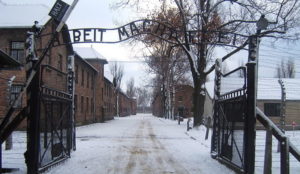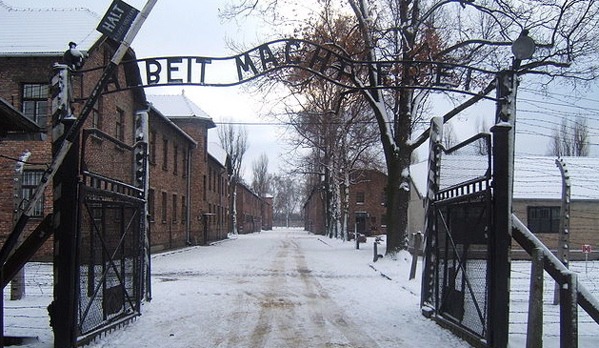At the end of every month, I summarize local, national and international “stories of need” from news sites, blogs, press releases and editorials. The following are some of April’s most need-in-the-news-worthy stories:
BURMA/MYANMAR — The expulsion of aid groups from west Burma has exacerbated the health crisis of the Royingha, a stateless and persecuted Muslim minority group.
NIGERIA — Insurgents orchestrated a mass abduction of more than 200 schoolgirls at a remote school in northeastern Nigeria. Despite pursuit by the Nigerian military, independent searches undertaken by the girls’ fathers, and a protest march in the capital Abuja, many of the girls are still missing. Conflict in the area has forced 750,000 people from their homes.
UKRAINE — Despite prayers for peace during Easter week, parts of Ukraine continue to descend into unrest.
GULF COAST, U.S.A. — Torrential rains, accumulating 19 inches in 24 hours in some places in Alabama and Florida, have caused officials to declare a state of emergency. More rain and storms are expected.
SOUTH SUDAN — Despite the power struggle between rival leaders of the Dinka and Nuer tribes in South Sudan, peace talks have resumed.
At times, what gets lost in the concern and clamor over major local, national and international events and issues, are the ordinary people who are doing extraordinary things. Here are a few I’ve heard about recently:
SOUTH KOREA — When a Jeju-Island-bound ferry carrying 425 people, including 325 high school students on a field trip, began to sink, crew member Park Jee Young, 22, handed out life jackets and helped passengers escape. When she ran out of life jackets she ran to the next floor of the ferry to get more, at the cost of her own life. A final list of casualties from the tragedy is still pending — at least 210 passengers died, while another 92 are still missing.
GHANA — In 1994, nurse Joan Awunyo-Akaba founded a nonprofit organization to advocate for children’s health. Twenty years later she and her organization are still going strong.
CHICAGO (Illinois) — Principal Elizabeth Dozier isn’t letting federal funding cuts keep her from turning around her city public high school.
AFGHANISTAN — Jerry Umanos, a pediatrician who gave up his practice at Lawndale Christian Health Center in Chicago to spend the last nine years caring for Afghan kids, was shot and killed by a security guard hired to protect him. The security guard subsequently shot himself but was saved after Umanos’s colleagues performed emergency surgery.
SOMALIA & SYRIA — Somali children from the largest refugee camp in the world, located in Kenya, sent letters of encouragement to Syrian refugee children.

AUSCHWITZ (Poland) — Despite his university’s disavowal and being branded a traitor by some of his fellow Palestinians, Mohammed S. Dajani, a professor, took 27 Palestinian college students to visit the former Auschwitz Nazi concentration camp in Poland.
Stories worth reflection:
HOLOCAUST REMEMBRANCE DAY — Sirens in Israel stopped traffic for two minutes of silence in remembrance of the Holocaust. This year there was particular focus on the deaths of 400,000 Jews from Hungary.
EVANGELICALS IN AGREEMENT ON IMMIGRATION REFORM — More than 250 evangelical pastors from 25 states met in Washington, D.C., to urge their members of Congress to act on immigration reform. In related news, the film “Documented” will be released this summer.
TRANSFORMATIONS: RWANDA AND MEDELLÍN — What helped change Rwanda from a victim of genocide to a global health model? What turned Medellín, Colombia, around after decades as a notorious drug capital?
ANTIBIOTICS LOSING EFFECTIVENESS — Antibiotics are one of the wonders of modern medicine, one that many of us rely on to combat illnesses. However, the World Health Organization is now warning that antibiotic-resistant diseases could cause future epidemics.
COFFEE BAD FOR ENVIRONMENT — According to a study published in BioScience, many of the world’s coffee farms are more harmful to the environment than ever.
VACCINES CHEAPEST LIFESAVERS — Bill Gates says investing in vaccines is the cheapest way to save lives.
HUNGER A SILENT CRISIS — A report by Feeding America found that 49 million Americans are “food insecure.” In a related story, college students are a largely unknown group affected by hunger.


